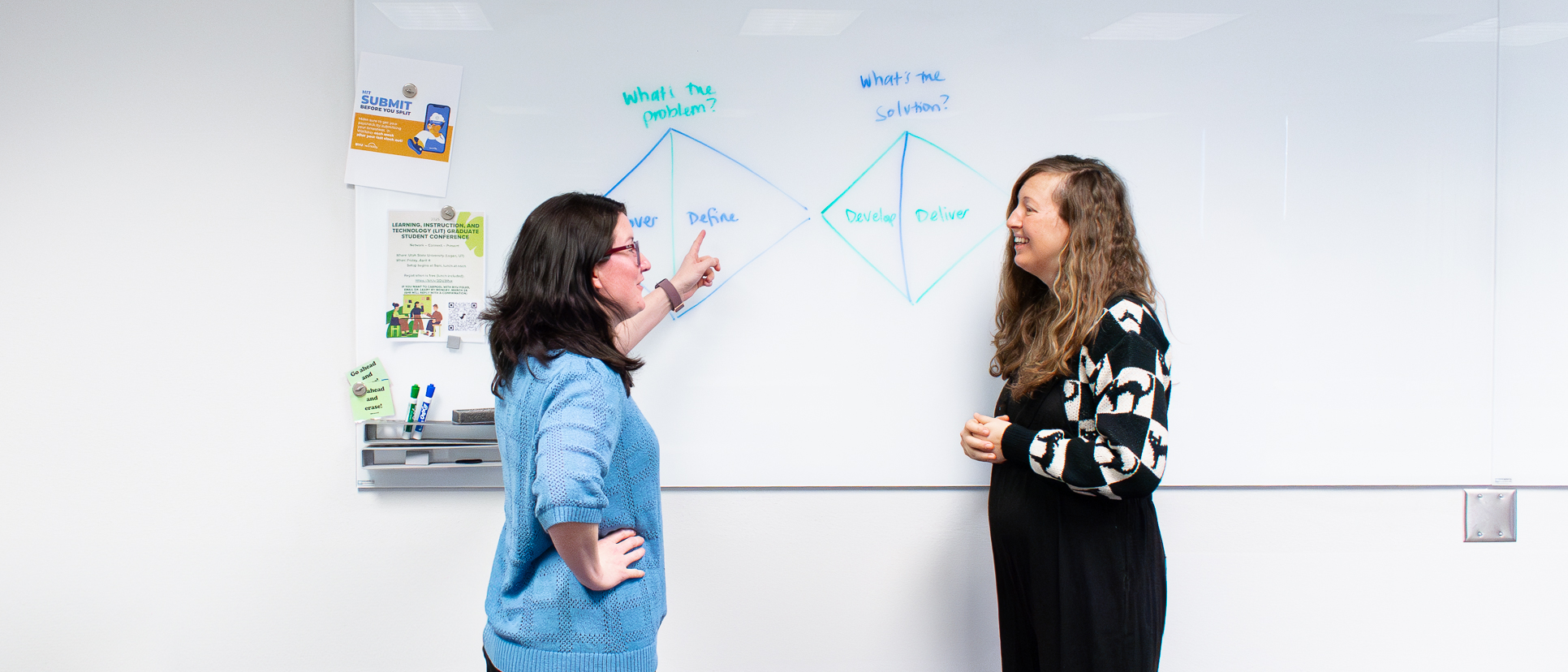Program Overview
PhD in Instructional Psychology and Technology
Overview
Our Savior, Jesus Christ, was the Master Teacher who commanded his followers to "teach diligently" (see Deuteronomy 6:7), both things spiritual as well as secular (see D&C 88:78-80). In the doctoral program of the Instructional Psychology and Technology department, we prepare expert teaching and learning professionals with the skills to meet this divine charge of education by helping them:
- Understand how, and when to apply theory and psychology in strategic and evidence-backed ways to improve learning;
- Utilize all methods of knowing, reasoning, and research to study the science of learning;
- Support strategic decision-making through rigorous evaluation and assessment;
- Develop leadership and collaboration skills in order to support and mentor other teachers, learners, and instructional designers; and
- Disseminate widely knowledge about effective learning and teaching so that "all may be edified of all" (see D&C 88:122).
Program Timeline
Core Credits (32 Credits)
- IP&T 510 - Scholarly Writing and Argumentation
- IP&T 520 - Foundations of Instructional Technology
- IP&T 560 - Instructional Product Development
- IP&T 564 - Instructional Design
- IP&T 620 - Principles of Learning
- IP&T 629 - (IP&T - CPSE) Introduction to Research
- IP&T 651 - (IP&T - CPSE) Statistics 1: Foundations
- IP&T 652 - Assessing Learning Outcomes
- IP&T 653 - (IP&T - CPSE) Qualitative Research 1 (Intro to Qualitative Research)
- IP&T 661 - Introduction to Evaluation in Education
- IP&T 690R - Seminar
Core Skills Electives (minimum of 9.0 credits)
- IP&T 515 – Special Topics in Instructional Technology
- IP&T 531 – Introduction to Open Education
- IP&T 620 - Principles of Learning
- IP&T 655 - Digital Interface Design
- IP&T 660 - Intermediate eLearning Development
- IP&T 665 – Instructional Visual/Video Production
- IP&T 682 – Project & Instructional Resource Management
- IP&T 692 – Advanced Topics
- EIME 720 – Design Based Research in Education
- IP&T 730 – Hierarchical Linear Modeling
- IP&T 745 – Statistics 2: Multiple Regression
- IP&T 747 – Structural Equation Modeling
- IP&T 750 – Literature Review & Synthesis
- IP&T 752 – Measurement Theory
- IP&T 753 – Qualitative Research 2
- IP&T 760 – Advanced E-Learning Development
- IP&T 761 – Advanced Evaluation
- IP&T 789 – Meta-Analysis
Internships (complete 2 for a total of 6.0 credits)
- IP&T 599R - Academic Internship
PhD Projects (complete two for a total of 6.0 credits)
- IP&T 657R - Measurement (take IP&T 652 before this project)
- IP&T 667R - Evaluation (take IP&T 661 or 761 before this project)
- IP&T 677R - Research (take IP&T 629 before this project)
- IP&T 687 - Development (take IP&T 564 before this project)
Specialization courses (minimum of 19.0 credits)
- IP&T 515R - Special Topics in IP&T
- IP&T 531 - Introduction to Open Education
- IP&T 538 - Teaching in Online and Blended Learning Environment
- IP&T 631 - Research in Open Education
- IP&T 638 - Research in Online and Blended Learning Environment
- IP&T 653 - Qualitative Research I
- IP&T 655 - Digital Interface Design
- IP&T 660 - Intermediate eLearning Development
- IP&T 661 - Introduction to Evaluation in Education
- IP&T 664 - Advanced Instructional Design
- IP&T 665 - Instructional Visual/Video Production
- IP&T 674 - Quasi-Experimental Research
- IP&T 682R - Project & Instructional Resource Management
- IP&T 692R - Advanced Topics
- EIME 720 - Design-Based Research in Education
- IP&T 730 - Hierarchical Linear Modeling
- IP&T 745 - Statistics 2: Multiple Regression
- IP&T 747 - Structural Equation Modeling
- IP&T 750 - Literature Review and Synthesis
- IP&T 752 - Measurement Theory
- IP&T 753R - Qualitative Research 2
- IP&T 754 - Item Response Theory
- IP&T 790R - Advanced Seminar
Dissertation credits (18 credits)
Graduation Requirements
90 credits
- 32 credits of core courses
- 9 credits of core skill electives
- 19 credits of specialization
- 6 project credits
- 6 credits of internship
- 18 dissertation credits
Oral exam
The Final Oral Examination should be scheduled with the Department Secretary. An oral exam may take from 1-4 hours, but typically lasts about 2 hours.
How to Apply
Submit Program Application
- Priority Deadline: January 15
Submit program application through Graduate Studies
Submit Proper Documents
- GRE
- Writing Sample
- Resume
- Grade transcripts
- 3 letters of recommendation
- Letter of intent








